When it comes to health, most people think of diet and exercise, but the physical dimension of health is so much more than just crunches and kale smoothies. It’s about embracing the body’s capabilities, understanding its limits, and finding joy in movement. After all, who wouldn’t want to feel like a superhero while dodging the occasional donut?
Physical Dimension of Health
The physical dimension of health involves an individual’s overall physical well-being. It encompasses various aspects, including body systems, fitness levels, and physical capabilities. Individuals should focus on the body’s functionality to enhance life quality. Regular exercise, proper nutrition, and sufficient rest significantly contribute to this dimension.
Understanding the body’s abilities fosters a positive attitude toward physical activity. Engaging in diverse physical activities, such as walking, swimming, or cycling, can improve cardiovascular health and muscular strength. Additionally, promoting flexibility through practices like yoga or stretching aids in maintaining mobility, preventing injuries, and enhancing performance.
It’s essential to recognize personal limitations in physical capability. Listening to the body’s signals helps in preventing overexertion and injury. Aim for consistency in physical activity, as it offers cumulative benefits over time. Studies indicate that meeting established guidelines for physical activity, such as 150 minutes of moderate-intensity exercise weekly, enhances overall health outcomes.
Cultivating joy in movement can transform one’s relationship with physical activity. Finding activities that bring satisfaction encourages regular participation. Ultimately, the physical dimension of health should be viewed as a journey, promoting long-term wellness rather than adherence to strict regimes. Individuals can build resilience, vitality, and a sense of empowerment through mindful engagement in their physical health.
Components of Physical Health
Physical health encompasses several vital components that work together to enhance overall well-being.
Nutrition and Diet
Nutrition plays a key role in physical health. A balanced diet rich in fruits, vegetables, lean proteins, and whole grains supports bodily functions. Macros such as carbohydrates fuel energy, while proteins aid in muscle repair. Essential vitamins and minerals from foods assist in various metabolic processes. Hydration is equally important; it maintains body temperature and supports organ function. Prioritizing proper nutrition leads to improved physical performance and boosts immune response.
Exercise and Physical Activity
Regular exercise is fundamental to maintaining physical health. Engaging in aerobic activities, like running or cycling, strengthens the heart and improves lung capacity. Resistance training builds muscle mass and enhances bone density. Flexibility and balance exercises, such as yoga or stretching routines, prevent injuries and enhance mobility. Experts recommend at least 150 minutes of moderate activity each week for optimal benefits. A consistent exercise routine fosters energy, improves mood, and promotes longevity.
Sleep and Rest
Adequate sleep is crucial for recovery and overall physical health. Sleep allows the body to repair muscles, synthesize proteins, and release hormones necessary for growth. Adults typically require 7-9 hours of sleep per night to function optimally. Insufficient sleep can compromise immune function and increase the risk of chronic conditions. Incorporating rest days in an exercise regimen prevents fatigue and promotes better performance. Prioritizing restorative sleep is essential for maintaining energy levels and improving mental clarity.
Importance of Physical Dimension of Health
The physical dimension of health plays a crucial role in overall well-being. Engaging in regular physical activity promotes longevity and improves life quality. Enhanced fitness levels lead to better mobility, increased energy, and greater productivity. Beyond mere exercise, the integration of proper nutrition and adequate sleep fosters optimal body functioning. Balanced diets consisting of fruits, vegetables, and lean proteins support metabolic processes and bolster immune systems. Diverse activities, such as swimming and hiking, contribute not just to cardiovascular health but to stress relief as well.
Impact on Overall Well-Being
Physical health impacts various aspects of life, including energy levels and productivity. Active individuals often report enhanced mood and increased happiness. Engaging in exercise releases endorphins, helping to combat feelings of anxiety. Healthier body systems lead to fewer illnesses and quicker recovery times, making daily life less challenging. Regular activity strengthens the heart and lungs, improving endurance for everyday tasks. Nutritional choices influence energy availability, helping individuals maintain consistent performance throughout the day.
Relation to Mental and Emotional Health
The physical dimension significantly relates to mental and emotional health. Consistent exercise has proven benefits for reducing symptoms of depression and anxiety. Physical activity serves as a powerful stress reliever, providing an effective outlet for pent-up tension. Additionally, improved physical fitness boosts self-esteem, enhancing body image perception. As individuals become more active, they cultivate a sense of accomplishment that nurtures motivation. Balanced nutrition supports brain function, further contributing to emotional stability. Overall, embracing physical health promotes a positive mental outlook, fostering resilience against life’s challenges.
Strategies for Enhancing Physical Health
Enhancing physical health involves employing practical strategies that foster well-being. These methods can lead to lasting improvements in overall quality of life.
Setting Realistic Goals
Establishing achievable goals bolsters motivation and fosters sustained commitment. Identifying specific objectives, such as exercising three times a week, creates clear expectations. Developing short-term milestones promotes a sense of accomplishment as progress is made. Regularly assessing these goals helps in adjusting them based on personal experiences and capabilities. Celebrating small victories, like completing a month of consistent workouts, further strengthens resolve.
Creating a Balanced Routine
Balancing various types of physical activities promotes overall fitness. A well-rounded routine includes aerobic exercises, strength training, and flexibility work. Incorporating activities that the individual enjoys increases adherence. Scheduling workouts at convenient times supports consistency and reinforces the habit. Adding rest days to the routine prevents burnout and reduces the risk of injury. Engaging in diverse activities like gardening or dancing also enhances fitness levels.
Overall Well-being
Embracing the physical dimension of health is essential for overall well-being. By recognizing the importance of regular exercise, balanced nutrition, and adequate sleep, individuals can significantly enhance their quality of life. Engaging in enjoyable activities not only promotes physical fitness but also fosters mental resilience and emotional stability.
It’s vital to listen to the body’s signals and respect personal limitations to prevent injuries. Setting realistic goals and celebrating progress can motivate consistent engagement in physical activities. Ultimately, viewing physical health as a journey empowers individuals to cultivate vitality and resilience, leading to a more fulfilling and vibrant life.


